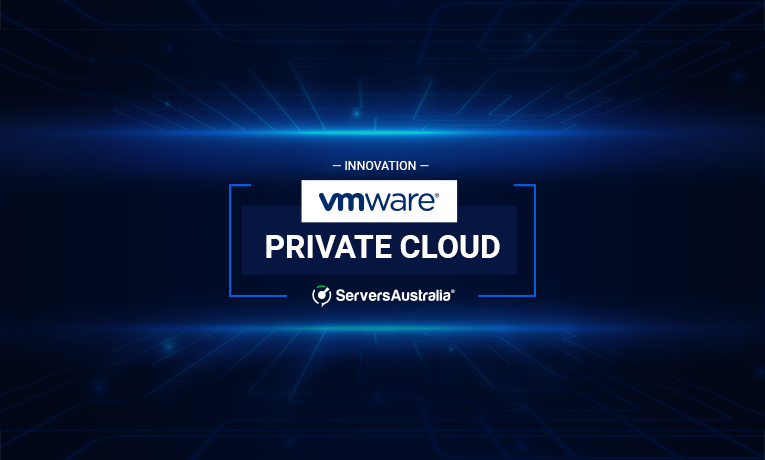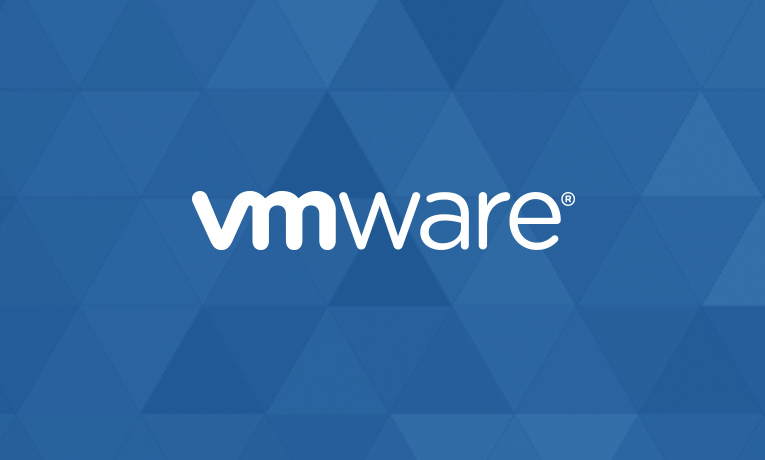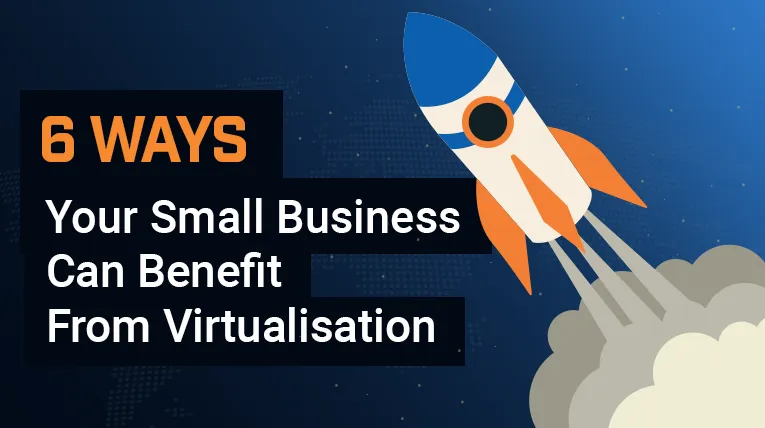Private Cloud Hosting
Last Updated: February 5th, 2024 5 min read Servers Australia

What is Private Cloud?
A private cloud is a dedicated cloud computing service for a single organisation, offering enhanced security and control. It can be hosted on-premises or by a third-party provider and is not shared with other entities.
In many ways, a private cloud is similar to the public cloud (the primary type in view when speaking of “the cloud”). Both offer businesses agility and sometimes significant savings, and both can be self-service, as well. The trait that distinguishes a private cloud from a public one is who is using it. A Private Cloud can have only one tenant: you.
Public cloud arrangements are set up in such a way that many organisations are sharing the same IT infrastructure. Private clouds, on the other hand, reserve specific IT resources for a single business or organisation.
In some cases, private cloud setups are housed on location, within your business’s data centre. Other private cloud arrangements rely on a third-party service provider. These service providers are sometimes well-known businesses that also offer public cloud services, but any service labeled private cloud will be siloed on its own independent hardware that’s dedicated to your organisation.
A private cloud is a dedicated cloud computing service for a single organisation, offering enhanced security and control. It can be hosted on-premises or by a third-party provider and is not shared with other entities.
When you choose a private cloud, your business gains the ability to customise resources and priorities within your cloud infrastructure according to your business priorities or in keeping with your unique security needs.
Businesses that need additional IT environmental control tend to utilise private clouds. These include governmental and financial entities as well as larger or enterprise organisations that plan to rely on the cloud for business-critical operations.
What are the benefits of Private Cloud?
Private Cloud Simplifies Business IT
When you partner with a private cloud service provider, you’ll greatly simplify your IT efforts. Your provider manages both hardware and software related to infrastructure, freeing you up to focus on the core of your business.
Private Cloud Increases Flexibility
Public cloud solutions tend to force businesses into the cloud host’s predefined box. For businesses that need greater customisation and flexibility, private cloud offers exactly that.
Private Cloud Reduces Costs
Relying on cloud hosting reduces your IT staff costs because your hosting provider handles both hardware and software issues. Due to the economy of scale, a hosting provider can offer these services for far less than it costs most businesses to run them internally. Private Cloud also has many great CapEx vs OpEx benefits.
Private Cloud Enhances Performance
With no other entities competing for bandwidth or resources, your private cloud gives you reliable high performance 24/7. If you need the absolute best cloud hosting in terms of performance, storage and computing power, private cloud is the answer.
Private Cloud Supports Growth and Agility
Most businesses cannot scale their on-premises infrastructure quickly and doing so is always significantly expensive. Relying on a cloud hosting provider gives your business instant access to nearly unlimited scalability, and costs remain in check.
Additionally, migrating from standard virtualisation platforms is simple with a private cloud. Further, private clouds give a greater level of security and data privacy than any other mainstream solution.
How do I build a Private Cloud?
Getting a private cloud up and running requires some up front effort, but the long-term benefits are significant. Businesses can reduce their IT complexity, increase security and often reduce costs.
While we always recommend working with a partner to build out a private cloud, below is a list of the basic steps necessary to do so.
Assess the company’s existing IT and cloud infrastructure, including application data, the nature of the workload and the current hosting environment (e.g., public cloud or on premises).
Assess the company’s on-site physical infrastructure to determine whether an on-premises private cloud is feasible
Build a virtualisation layer (typically in VMware, Hyper-V or Xen).
Deploy a discovery tool to perform asset management, tracking and updating infrastructure as it changes
Build out virtualisation management tools
Integrate those virtualisation management tools with asset management tools
Set up automation and orchestration of the business’s virtual machines
Deploy a range of other tools in the management layer and integrate those within the automation and orchestration layer
Build out ITFM and service catalogs
Build and configure all initial orchestration workflows, including provisioning/deprovisioning
Deploy an end-user portal so that staff at the business can access and manage necessary functions
Integrate any remaining functions specific to the business or industry, such as billing tools
Test all aspects of the buildout and create solutions to discovered flaws
Transition day-to-day management to your service provider
What's the difference between public and private cloud?
Public cloud services provide computing resources (like servers, storage, and applications) over the internet, offered by third-party providers. These resources are shared among multiple organisations, making it a cost-effective, scalable solution with minimal upfront investment. Public clouds are known for their flexibility, high availability, and pay-as-you-go pricing model, making them suitable for businesses with fluctuating demands.
Private cloud, on the other hand, is dedicated solely to one organisation, providing exclusive access and control over its environment. This can be hosted on-premises or by a third-party provider but is always maintained on a private network. It offers enhanced security and customisation options, catering to businesses with strict data control, regulatory requirements, and unique business needs. While it requires a larger upfront investment compared to public cloud, it provides more control over the infrastructure and data, making it ideal for organisations with high security and performance demands.



